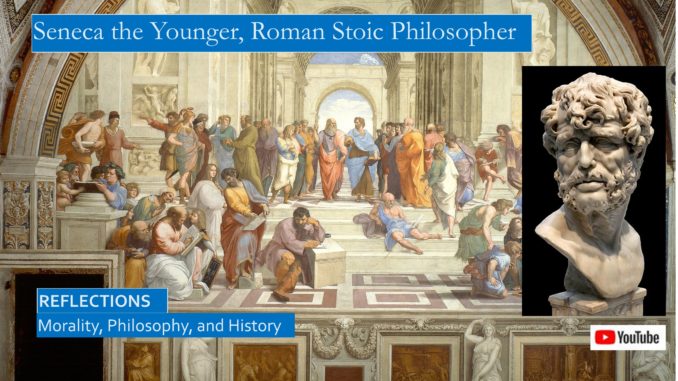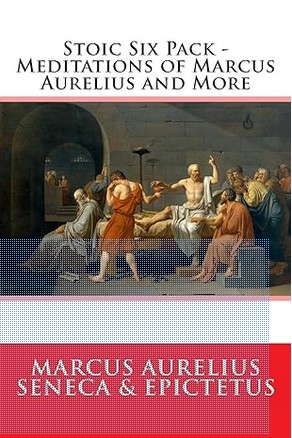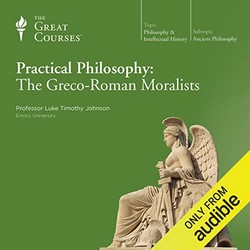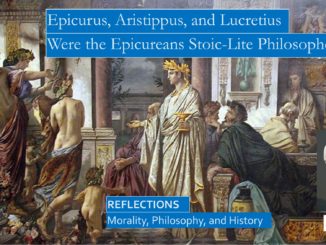
If Seneca would be writing today, perhaps he would title this essay, Encouragements to the Budding Blogger. It is good to read the works of wise men, Seneca says, but men long dead cannot think for you, you need to think for yourself, reading the classics for inspiration, not duplication. Seneca advises us, “Take command, and utter some word prosperity will remember.” Why only memorize maxims from dusty tomes? Make some maxims yourself. It is one thing to remember maxims, quite another to know the true meaning of the maxims.
Letter XXXIII – On the Futility of Learning Maxims
Above all, we should search for the truth. But we will never discover the truth today “if we rest contented with discoveries already made.” Perhaps the old road is a good road, but if you find a newer road that is shorter and smoother, use the new road. “Men who have made discoveries before us are not our masters, but our guides. Trust lies open for all; it has not all yet been discovered.” And there is enough truth for posterity to discover.[1]
Seneca Blog 1 http://www.seekingvirtueandwisdom.com/seneca-moral-epistles-blog-1-living-well-dying-well/
Letter L – On Blindness and Its Cure
Seneca tells us of the blind guest who does not know he is blind, but merely asks for a change in quarters because their current quarters are too dark. Those of us who are greedy, who are covetousness, do we see our faults, or do we explain them away as the inexorable demands of the modern world. Have you ever met a grouch who laid the blame for his grouchiness on himself? Never is life’s troubles our fault.
YouTube Video for blogs 1-3, which includes introductory material not in blogs: https://youtu.be/wgD8skYi3I0
YouTube script with more book links: https://www.slideshare.net/BruceStrom1/seneca-the-younger-roman-stoic-philosopher-short-biography-and-sayings
Seneca asks, “Why do we deceive ourselves? The evil that afflicts us is not external, it is within us, situated in our very souls; for that reason we heal that much more difficultly, because we do not know we are diseased.”
It is easier to improve ourselves if “we begin to mold and reconstruct our souls before they are hardened by sin. But I do not despair even of a hardened sinner. There is nothing that will not surrender to persistent treatment, to concentrated and careful attention, however the timber is bent, you can make it straight again. Heat unbends curved beams. How much more easily does the soul permit itself to be shaped!”
We all need patience, we all need to be patient with our loved ones and our acquaintances, everyone should be patient with us, and we should be grateful for the patience shown to us, as patience is so rare. Seneca reminds us, nobody inherits good before evil, evil inclinations gets first hold on all of us. “Learning virtue means unlearning vice. We must free ourselves from our faults with courage, for once we attain it the good can be an everlasting possession; virtue is not unlearned.” But since the weak and diseased mind fears the virtue that is unfamiliar, the first steps to attaining steadfast virtue are toilsome. “The mind must be forced to make the first step, but from then one the medicine is not bitter.” Living a godly life brings joy and happiness, “the draught of philosophy is both wholesome and pleasant.”[2]
Letter LIII: Loving Philosophy, Loving God, Loving our Neighbor
Indeed, stoicism not only prepared the world for Christianity, Christianity echoes stoic thoughts. Indeed, philosophy was to the ancient Greeks what theology and Scriptures are to Christians today.
Seneca tells us that philosophy is not a pastime to be followed not here and then, but rather everyday, philosophy is a mistress always commanding our attention. “Philosophy is the only power that can stir us, the only power that can shake us out of our deep slumber, our apathy. Devote yourself wholly to philosophy. You are worthy of her; she is worthy of you, greet one another with a loving embrace. Say farewell to all other interests with courage and frankness. Do not study philosophy merely during your spare time.”
Scriptures exhort us to pray without ceasing, to always guard out thoughts and our tongue, to always ponder the Word of God. Perhaps the problem is not that we do not pray unceasingly, but rather, to whom or what do we pray unceasingly, what occupies our waking thoughts, do we strive to love our neighbors as ourselves, or do we rather let our hearts be filled with bitterness, anger, and resentment towards all we meet?
Seneca writes, “You are worthy of philosophy; she is worthy of you, greet one another with a loving embrace.” Through grace we are forgiven, through grace we become the adopted sons of God, through grace we are forgiven, with the graciousness of one forgiven we should be eager to forgive our neighbor, for the Good Shepherd never rejects the sheep of His flock, and as we Love God with all of our heart and with all of our mind and with all of our soul and with all our strength we will be better able to love our neighbor as ourselves.
“Say farewell to all other interests with courage and frankness. Do not study philosophy merely during your spare time.” Do you every day instinctively turn on the television the minute you walk through the door? Or is the idiot box on all day long every waking and sleeping hour? Why not read and study Scriptures and philosophy so every day we can learn how to be a slightly better person than the day before? Were we put here on earth so we can be mindlessly entertained by television? Seneca advises us to “throw aside all hindrances and spend your time to gain a sound mind, philosophy is a subject for daily practice and study, philosophy is a mistress commanding our attention.” “Turn to philosophy with all your soul, sit at her feet, cherish her. If you do a great distance will separate you from other venial men.[3]
Seneca Blog 4 http://www.seekingvirtueandwisdom.com/seneca-moral-epistles-blog-4-stoic-concepts-of-virtue-and-the-good/
[1] Seneca, “Moral Discourses,” in Stoic Six-Park – Meditations of Marcus Aurelius and More, translated by Richard Gummere, (Enhanced Media, 2014, first published 1925), Letter XXXIII, 277-278
[2] Seneca, Moral Discourses, Letter L, 301.
[3] Seneca, Moral Discourses, Letter LIII, 306-308.






3 Trackbacks / Pingbacks